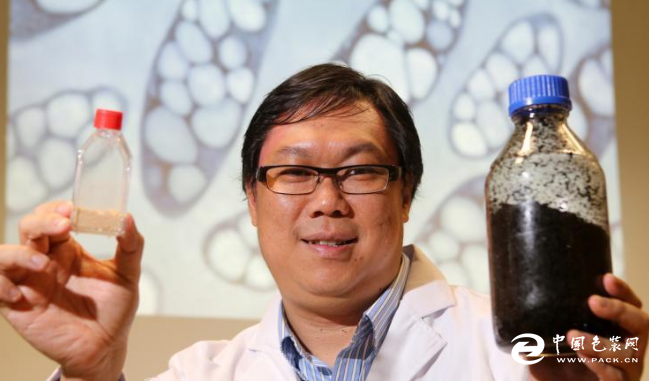
According to Singapore’s “Lianhe Zaobao†report, the Nanyang Polytechnic R&D team has developed a method to extract a biological component from coffee grounds in a low-cost and environmentally-friendly manner that can be used to make environmentally-friendly plastics.
Dr. Liang Bohao, a senior lecturer in the department of chemistry and life sciences at Nanyang Institute of Technology, has led more than 10 students to complete this experiment since 2013, extracting Polyhydroxyalkanoates (PHA) from Singaporean-used Nanyang coffee.
PHA is a type of biopolymer that has been fermented by bacteria and can be used to produce environmentally friendly, more easily decomposable plastics. However, the existing production methods are expensive and can create waste that is harmful to the environment. Liang Bohao decided to invest this research several years ago.
When he released the research results on the 11th, he revealed that the pure PHA sold in the market had a price of nearly 28,000 yuan per gram, and that every 100 grams of PVC plastic had to be added with 5 grams of PHA in order to make one or two hundred environmentally friendly plastic bags. He estimates that the new extraction method can halve the cost of producing PHA.
Liang Bohao explained that the extraction process is mainly divided into three major steps, which takes about two weeks. First, water and a genetically modified bacterium are added to the coffee grounds, followed by culturing at room temperature for 7 to 10 days to produce PHA, and finally PHA is added by adding an organic solvent such as acetone.
He said that one of the characteristics of this study was the selection of the dregs of Nanyang coffee. This type of coffee bean is baked with sugar and butter, which is beneficial to bacterial culture. In addition, the solvent acetone used by the research team is safer than the components in the general nail polish remover. It will evaporate during PHA extraction and reduce harmful waste.
Liang Bohao told reporters that acetone is half the cost of commercial solvents, and that bacteria can reproduce at room temperature, eliminating the need to create high-temperature environments and waste disposal fees, thus reducing production costs.
However, the experiment was not successful at the beginning. Liang Bohao said that the efficacy of acetone is not as strong as other solvents, so that the purity of the extracted PHA is insufficient. General PHA purity is about 50%, but they originally only achieved 30% purity. Later, the senior lecturer of the same department, Erwin, assisted them in transforming the genes of bacteria, which broke the bottleneck.
In the past four years, the team charged more than 80 kilograms of coffee grounds from the school cafeteria for experiments. At present, 0.5 g to 2.5 g of pure PHA can be extracted per 100 g of coffee grounds. Liang Bohao hopes to work with business partners in the next three to five years to put this method of PHA extraction into the market.
Manual Patient Bed,Medical Patient Bed,Back Lifting Hospital Bed,Crank Manual Hospital Bed
Jiangmen Jia Mei Medical Products Co.,Ltd. , https://www.jmmedicalequipment.com